By Dave Dunbar, Retired – National Sales Manager at General Pipe Cleaners Roots are your sewer pipes’ worst nightmare! Tree roots are constantly in a state of hunger and thirst, searching relentlessly for water and nutrients. Both are abundantly available inside the drainpipes that lead from our homes to the septic systems or municipal sewage Read more
Dave Dunbar

By Dave Dunbar, Retired – National Sales Manager at General Pipe Cleaners
Roots are your sewer pipes’ worst nightmare! Tree roots are constantly in a state of hunger and thirst, searching relentlessly for water and nutrients. Both are abundantly available inside the drainpipes that lead from our homes to the septic systems or municipal sewage treatment plants that process our waste.
Root hairs are tiny, sometimes only a few cells wide, but they grow quickly and can sense the vibration of running water. When they squeeze through a small crack or crevasse in a drainpipe and find what they are looking for, they begin to grow and expand. Over a period of months and years, this unrelenting pressure on the pipe expands the initial crack and begins to cause severe damage. Before you know it, you have a tree root blocking your drain and the pipe is leaking like a sieve. When a plumber or drain cleaner encounters a pipe in this condition, ignoring the problem is not an option. Depending on conditions and circumstances, there are several strategies that a professional can use to solve the problem.
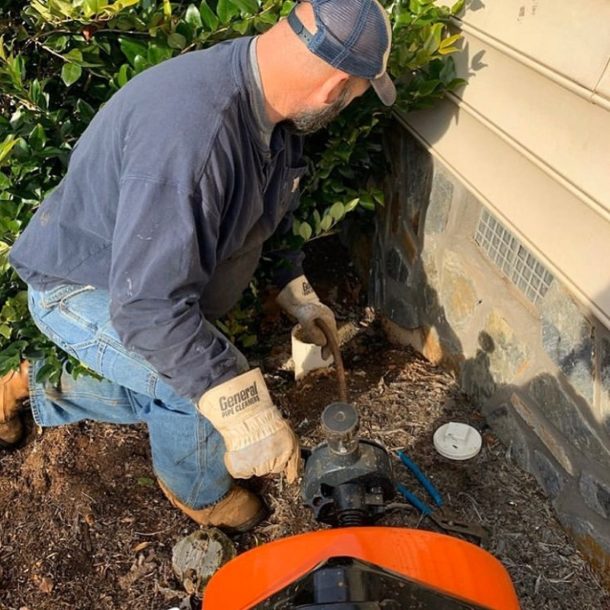
Here are the top five ways of dealing with root incursions:
Replace or Reline the Infested Pipe
If a drainpipe has lost its structural integrity, obviously, the best solution would be to replace it. Modern plastic pipe, when properly installed, will be far more waterproof and durable than what is in the ground at the present moment. Or, if digging a trench through the customer’s property is not the most convenient solution, there are a multitude of pipe relining products and strategies that are almost as good. Because replacing or relining is a foolproof solution to the problem, a growing number of municipalities across North America mandate replacing leaking pipes whenever the property changes hands. If this is the case, the contractor and customer have no choice.
However, despite replacement/relining being the best engineering solution to the customer’s problem, it will certainly be the most expensive. So, if the contractor’s plans are not mandated by municipal statutes, there may be a number of factors to consider before recommending this course of action. For example, how old is the customer, and what is their financial situation? How long do they intend to keep the property? Are there geographic considerations that make other options more attractive? If none of these other considerations prevent it, then pipe replacement remains the best solution.
Cable Drain Cleaning Machine
Although replacing or relining the pipes is a foolproof solution, the most commonly used method of removing and cutting roots is a cable style drain cleaning machine like General Pipe Cleaners’ Speedrooter 92. Much of this has to do with cost and expediency. For a few hundred dollars and two hours’ time, the customer is usually rewarded with a functioning drainpipe. Contrast this with enduring several messy construction days and perhaps tens of thousands of dollars for a pipe replacement job. It is a small wonder that, after doing the math, customers continue to pick the drain cleaning option despite the fact that it does not fix the underlying problems that allowed the root incursion in the first place. Any cracks, crevices, or separations that existed in the pipe before using the snake are certainly still there. These openings act as inducements for more root incursion, as well as allowing inflow of rainwater, which contributes to sewage overflows into our rivers, lakes, and oceans. At best, snaking a drain to remove root incursions is a temporary solution. However, as we will see, there are things a contractor can do to increase the effectiveness of this option.
High-Pressure Water Jetters
Another tool that can perform many of the same functions as the drain snake already mentioned is a high-pressure water jetter, which has become the go-to tool for a lot of professionals for issues in any large drain. Like a cable-style drain cleaning machine, jetters have ways to mechanically remove roots from the inside of a pipe.
First, there are Chain Saw Nozzles that convert the kinetic energy of the high-pressure water generated by the pump to spin a chain saw nozzle at the end of the hose. These chain saws can rotate at speeds up to 30,000 RPM, more than enough to buzz through the toughest root incursions. If the pipe isn’t completely filled with wood, then a high-performance nozzle can often do the trick. These jetter nozzles are designed with the same technology used to make nuclear submarine propellers and convert almost 100% of the water’s energy to high-pressure streams that cut like razors.
Although high-pressure water jetters are also a temporary solution to the problem of root incursion, they have the advantage of preparing the pipe for more thorough inspections or pipe relining. When a professional gets done jetting a drain line, it will look like a new pipe again!
Flexible-Shaft Technology
Flexible-Shaft machines utilize a swiftly rotating wire coil inside a flexible hollow tube or hose that is connected to a cutting device on the front end. Because these cutters rotate at approximately 2,000 RPM, Flex-Shaft machines are adept at milling, pipe prep and root removal. For this reason, they are used extensively in the pipe relining industry, and have also become popular with plumbers and drain cleaners whose only goal is to cut and remove root incursions.
Flexible-Shaft machines tend to be used in tandem with pipe inspection systems, giving the contractor pinpoint control over the root cutting process. Like the snake style machines and high-pressure water jetters previously described, using a Flexible-Shaft machine to cut roots is a temporary solution to the customer’s problem. However, as already mentioned, they are often used for milling and pipe prep in the relining process. When utilizing the proper cutting tool, they leave the pipe in perfect condition to adhere to the material used in the pipe relining procedure. Testing has shown that pipe relining is often just as effective as pipe replacement at repairing the damage done to sewer pipes by root incursions.
Root Killing Solutions
Root Killing Solutions are chemical or biological products that the contractor introduces into the affected pipe to kill existing roots and inhibit further growth. While there are quite a few products available to the professional, most recommend that they be used either within one hour after cutting the roots with one of the methods already described, or after 8 weeks. Many contractors will recommend a thorough drain cleaning session with their snakes, jetters or Flexible-Shaft machines coupled with a root killing product. They will then attempt to lock the customer into a bi-yearly or annual preventative maintenance contract to reintroduce root killer to keep the problem at bay. This strategy can be a highly effective alternative for customers who do not wish to spend the money for a pipe replacement or pipe relining job, or do not plan to own the property indefinitely.
Most contractors do not lock themselves into using just one of these strategies when dealing with root incursions. More and more professional drain cleaners seem to have snakes, high-pressure water jetters, Flexible-Shaft devices, root killing products and sewer inspection cameras on every truck. As technology progresses in the field of plumbing and drain cleaning, contractors have more and more options available to them.
Remember, staying abreast of all the developments in our industry will give you the flexibility to successfully address the unique features of every job and every customer!

Misconception #1 – You should always wear rubber gloves when operating a snake style drain cleaning machine to protect yourself from the health risks of sewage. While it is true that plumbers and drain cleaners should always be aware that they and their equipment are potentially in contact with human waste and take appropriate actions Read more
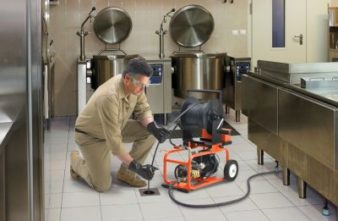 Misconception #1 – You should always wear rubber gloves when operating a snake style drain cleaning machine to protect yourself from the health risks of sewage. While it is true that plumbers and drain cleaners should always be aware that they and their equipment are potentially in contact with human waste and take appropriate actions, operating a cable style drain cleaning machine wearing only rubber gloves is not one of them. The problem with rubber gloves is that they can become pinched and caught in the rotating coils of a drain cleaning cable, causing great harm to the operator. We always recommend that operators wear heavy-duty two-ply leather gloves or something similar whenever their hands are anywhere near a drain cleaning machine. Thick leather gloves will not get caught between the coils of a snake or cable and can protect your hands from unexpected kinks or loops that sometimes form in the blink of an eye. If you want to wear rubber gloves to take appropriate sanitary precautions against sewage, then wear them under the leather gloves. This strategy gives you two levels of protection!
Misconception #1 – You should always wear rubber gloves when operating a snake style drain cleaning machine to protect yourself from the health risks of sewage. While it is true that plumbers and drain cleaners should always be aware that they and their equipment are potentially in contact with human waste and take appropriate actions, operating a cable style drain cleaning machine wearing only rubber gloves is not one of them. The problem with rubber gloves is that they can become pinched and caught in the rotating coils of a drain cleaning cable, causing great harm to the operator. We always recommend that operators wear heavy-duty two-ply leather gloves or something similar whenever their hands are anywhere near a drain cleaning machine. Thick leather gloves will not get caught between the coils of a snake or cable and can protect your hands from unexpected kinks or loops that sometimes form in the blink of an eye. If you want to wear rubber gloves to take appropriate sanitary precautions against sewage, then wear them under the leather gloves. This strategy gives you two levels of protection!
Misconception #2 — You should put a drain cleaning machine in reverse when retracting cable using a power feed device. Most modern drum style cable drain cleaning machines have a power feed and guide tube. This equipment makes it much easier to feed and retract the cable and serves to protect the operator. Every floor model brand of drain cleaning machine has a power cable feed that allows the operator to easily switch from forward to neutral to reverse while the drum and cable continues to spin in the forward direction. This feature is essential for smooth and effective operation of the machine. If the operator puts the electric motor in reverse and spins the drum and cable in the opposite direction, bad things tend to happen! Most drain cleaning companies coil their drum style cable in a ‘left hand wound’ direction. These cables are simply long, thin springs. Sometimes, like General’s Flexicore Cables, they have a solid inner core, and sometimes they don’t. However, all of them have a ‘direction’ to the outer coil that affects their performance and capabilities when under torque or in motion, and the drums, distributor tubes and power feeds that house and feed these cables are engineered with these capabilities in mind. When you reverse the motor while retracting the cable, you drastically increase the likelihood of kinking, tangling, or weakening the cable. The only time an operator should put the motor and drum of a machine in reverse is when they get a cutter wrapped up in an obstruction, and even then the duration should only be for a few seconds. Save yourself future complications and keep the machine in forward when the power feed is in reverse!
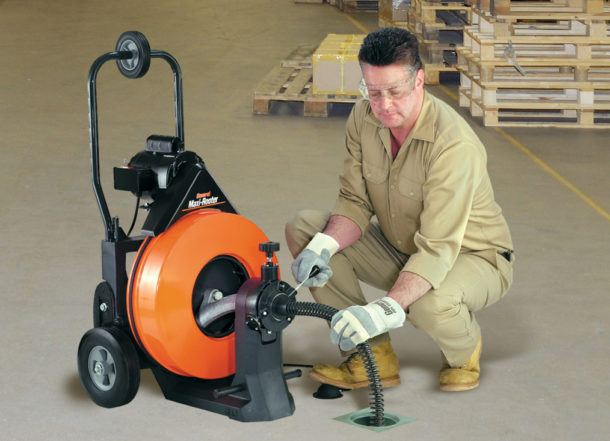
Misconception #3 – Hot water is better than cold water in cleaning drains with a high-pressure water jetter. While it is true that hot water can dissolve grease faster than cold water, the effect at high pressure is marginal. Generally speaking, in real world situations, it is not worth the additional cost and effort. Adding hot water pumps and heating tanks to your jetter protocol makes for a more expensive unit as well as doubling your work at the jobsite. High pressure cold water can do the job almost as fast, without the additional expense and time expenditure. For that reason, in a world where time is money, cold water is the way to go!
Misconception #4– High pressure water drain cleaning jetters with 4000 psi perform better than jetters with 3000 psi. In the past several years, we have seen more and more drain cleaning jetters with 4000 psi come on to the market, claiming that they have more power and effectiveness. However, according to our research, these claims are unfounded. When cleaning a drain, both pressure and flow rate are important factors. The psi, or pounds per square inch is necessary to dislodge foreign material in the pipe like grease and sludge. The jetting process is analogous to spray washing, and a certain amount of pressure, or psi is necessary to scour the inside of the pipe. However, after about 2,500 psi, further increases in pressure fail to deliver significant improvements in cleaning action. From that point on, the gallons per minute flow rate, or gpm grows in importance. For example, increasing a jetter’s flow rate from 4 gpm to 5.5 gpm almost doubles the machine’s drain cleaning speed, regardless of whether the psi is 3000 or 4000. So, look closely at the flow rate of high pressure water jetters before you buy, and don’t be fooled by marketing programs masquerading as science!
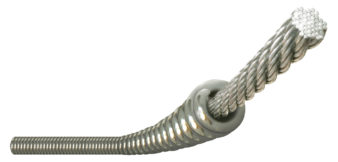 Misconception #5 — One of the biggest misconceptions that we hear from first-time General Pipe Cleaners customers is misjudging the ‘initial feel’ of our Flexicore Cable. If the customer is used to another brand of drain cleaner and then purchases a General machine or cable for the first time, they often complain to us that they received a defective cable. To them, compared to the cables that they are used to, it feels limp, weak and not stiff enough to fight its way through tough obstructions down the drain. Although their fears are unfounded, Flexicore does have a looser feel from other cables on the market because of the way it is engineered. However, we reassure our new customers is that the Flexicore will stiffen and strengthen when under torque, giving them clog busting power exactly when they need it the most. According to one customer, “it goes from a noodle to a steel rod in the blink of an eye when you hit the obstruction!” When it comes to General’s patented Flexicore Cable, first impressions can be misleading!
Misconception #5 — One of the biggest misconceptions that we hear from first-time General Pipe Cleaners customers is misjudging the ‘initial feel’ of our Flexicore Cable. If the customer is used to another brand of drain cleaner and then purchases a General machine or cable for the first time, they often complain to us that they received a defective cable. To them, compared to the cables that they are used to, it feels limp, weak and not stiff enough to fight its way through tough obstructions down the drain. Although their fears are unfounded, Flexicore does have a looser feel from other cables on the market because of the way it is engineered. However, we reassure our new customers is that the Flexicore will stiffen and strengthen when under torque, giving them clog busting power exactly when they need it the most. According to one customer, “it goes from a noodle to a steel rod in the blink of an eye when you hit the obstruction!” When it comes to General’s patented Flexicore Cable, first impressions can be misleading!
 David Dunbar is the National Sales Manager for General Pipe Cleaners, a leader in the drain cleaning/pipe inspection industry. He has been with General since 1996, starting as Customer Service Manager, then Assistant Sales Manager, and National Sales Manager since 2017. He earned a BS degree in Psychology from the University of Pittsburgh and has graduate credits in Human Resource Development and Organizational Theory. David enjoys using his extensive public speaking, video, and writing experience within the industry. He can be contacted at daved@generalpipecleaners.com
David Dunbar is the National Sales Manager for General Pipe Cleaners, a leader in the drain cleaning/pipe inspection industry. He has been with General since 1996, starting as Customer Service Manager, then Assistant Sales Manager, and National Sales Manager since 2017. He earned a BS degree in Psychology from the University of Pittsburgh and has graduate credits in Human Resource Development and Organizational Theory. David enjoys using his extensive public speaking, video, and writing experience within the industry. He can be contacted at daved@generalpipecleaners.com

So, as the story goes, a sales rep out west who had spent decades selling a competitor’s plumbing products is hired by General Pipe Cleaners. After initial training, he returned to his territory with a smattering of cables, cutters and drain cleaning machines to get him started. The first time he demonstrated the Flexicore Cable Read more
So, as the story goes, a sales rep out west who had spent decades selling a competitor’s plumbing products is hired by General Pipe Cleaners. After initial training, he returned to his territory with a smattering of cables, cutters and drain cleaning machines to get him started.
The first time he demonstrated the Flexicore Cable, he called the company to complain that the pipe snake, “just didn’t feel right!” It felt “limp”, not “springy.”
As Dave Dunbar, National Sales Manager with General Pipe Cleaners explained, “the Flexicore engineering process has the effect of making the cable feel less springy than hollow cables.”
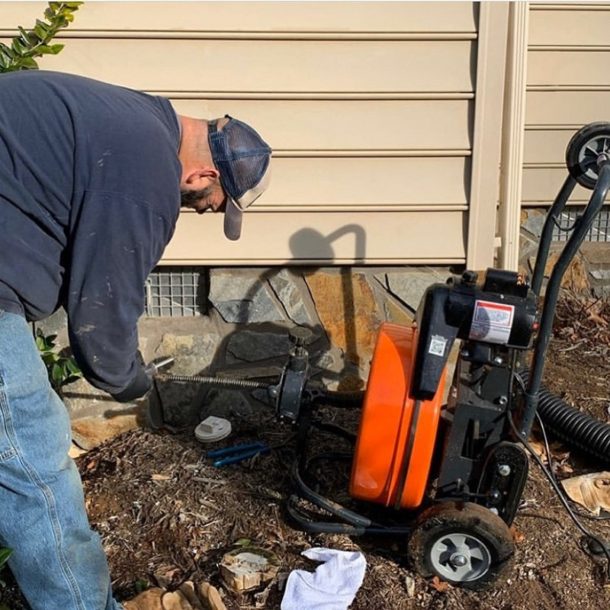 It took a few phone calls to get things straightened out with the rep, but then six months later, he was complaining that the cables lasted so much longer than his former brand’s that he was only selling a fraction of his previous replacement snakes. A small fraction.
It took a few phone calls to get things straightened out with the rep, but then six months later, he was complaining that the cables lasted so much longer than his former brand’s that he was only selling a fraction of his previous replacement snakes. A small fraction.
It was this story that interested a few of our contractor friends. Why would it be springy? Is it really that stiff and is that a good thing? Would it really last longer?
Knowing General Pipe Cleaners would be at the WWETT Show this past spring, I introduced the General’s team to a few drain cleaning contractors that we are big fans of and have worked with in the past. It was my hope that we could create some valuable and interesting content based on the original story and the contractors having never used Flexicore.
It was soon after the show that we asked for them to send a few of their Flexicore cables to a few of our ProStaff team members to get their thoughts on the cable. They obliged and three drain cleaning pros were sent the cables to use on their existing cable machines, which for transparency, were all competitor drum machines.
As you may know, the Flexicore cable is the result of a process, where instead of coiling a hollow cable, they tightly wrap spring steel around a 49 strand aircraft quality wire rope. This provides the cable additional strength when it is under torque.
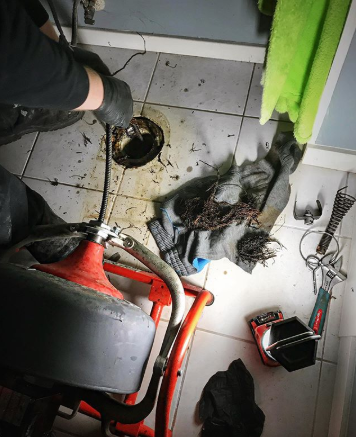 Each member of our team received a variety of Flexicore cables based on their typical daily drain cleaning challenges with the request to use them over a couple of months and provide feedback. The team of contractors included Felix Delgadillo, DrainGuys (Chicago), Terence Chan, Impetus Plumbing (Vancouver) and Jeff Keller, Bulldog Contractors (Texas), all are longtime drain cleaning professionals in their area of the country.
Each member of our team received a variety of Flexicore cables based on their typical daily drain cleaning challenges with the request to use them over a couple of months and provide feedback. The team of contractors included Felix Delgadillo, DrainGuys (Chicago), Terence Chan, Impetus Plumbing (Vancouver) and Jeff Keller, Bulldog Contractors (Texas), all are longtime drain cleaning professionals in their area of the country.
As expected, those daily challenges included providing both residential and commercial services, addressing clogged kitchen drains, clogged bathroom drains, clogged outdoor drains, and clogged sewer lines using today’s best technology to unclog lines to keep the water flowing.
While Keller, Chan and Delgadillo confirmed that this was the first time using the cable, Chan stated what all three mentioned, “I’ve never used the product but very excited to see what it can do.”
Chan went on to say, “Initially seeing the product, I was a bit leery how it may hold on to the heads, but it did, really well. In fact, I’ve had trouble with heads from a competitor and the Flexicore held.”
“The screws to hold on the head versus a snap lock is a nice addition,” said Keller.
One of the unique byproducts of the Flexicore process is that the cable stiffens and gets stronger under torque, which Delgadillo agreed, “the cable feels less springy and it does get quite stiff when the operator needs it the most.”
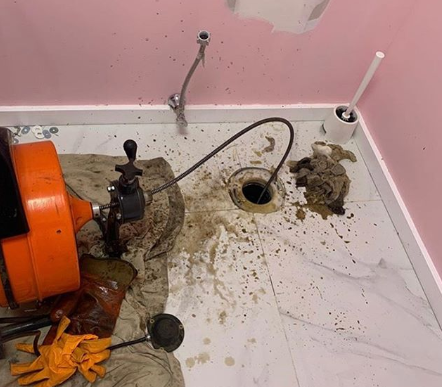 Keller continued, “it caught me off guard and took some getting used to. Most if not all drain cleaners/plumbers are used to listening to their machines and the feel of the strain on the cable to evaluate the blockage, so this was a bit different, but did a solid job.”
Keller continued, “it caught me off guard and took some getting used to. Most if not all drain cleaners/plumbers are used to listening to their machines and the feel of the strain on the cable to evaluate the blockage, so this was a bit different, but did a solid job.”
As discussed in the WWETT video, when a drain cleaning machine rotates a pipe snake down the drain and it hits a clog or stoppage, tension or torque builds up in the cable. Because of the direction the drum is turning, the reaction of the outer coil of spring steel is that it wants to contract due to the tension. However, because the wire rope is in the way, the only thing that it can do is tighten, which makes it stiffer and stronger and the cable much less likely to kink or break when in use.
Chan concluded, “I would recommend this to peers in the field as it got the job done. I’m curious to see the long-term difference versus some of the cables we typically use and recommend everyone make sure they have the cable sizes they need for their machines.”
We second that Terence! Be sure to size your cables correctly so it all works perfectly.
While the contractors are still using the cables in the field, it was a unanimous decision that more time in the field was needed to truly understand the value of Flexicore cables and how it holds up long term versus other options.
We will continue to check in with the team to provide updates later in the year.
Contractor Bios:
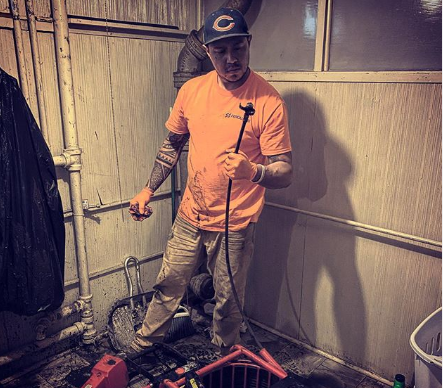 Felix Delgadillo – He has been in the plumbing trades for over 15 years. Most of his experience has been in remodels & new construction for both commercial and residential. He is passionate about new construction and wanted to expand professionally to the service side. In 2019 he started his second company, Drain Guys, LLC. Drain Guys specializes in commercial and residential sewer cleaning, camera inspections & locating.
Felix Delgadillo – He has been in the plumbing trades for over 15 years. Most of his experience has been in remodels & new construction for both commercial and residential. He is passionate about new construction and wanted to expand professionally to the service side. In 2019 he started his second company, Drain Guys, LLC. Drain Guys specializes in commercial and residential sewer cleaning, camera inspections & locating.
IG: www.instagram.com/drainguyschicago
Facebook: www.facebook.com/Drainguyschicago
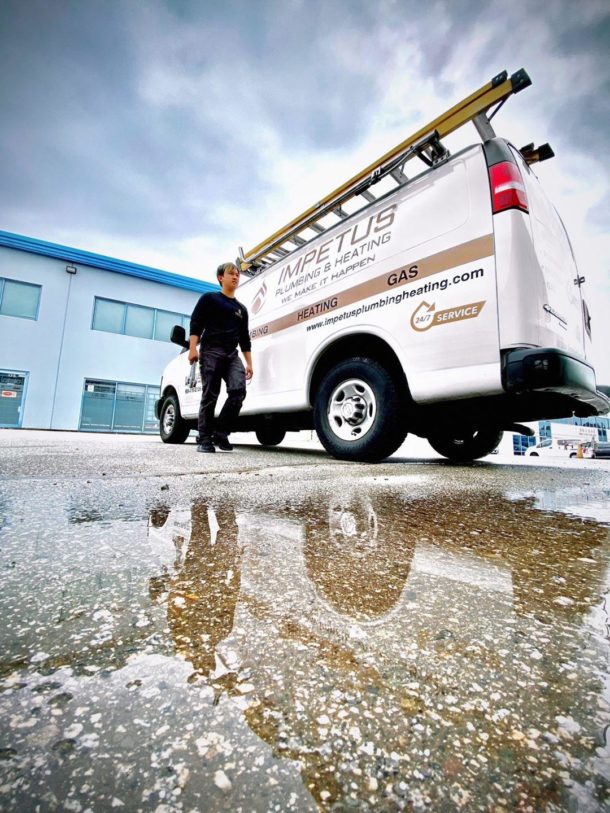 Terence Chan – He is a plumbing, heating and gas contractor out of Vancouver, BC, Canada. His company is Impetus Plumbing and Heating. Impetus stands for a force that makes something happen, which stands for everything their name defines them to be. We make everything happen and will never say no to any job. This company wants to be seen as the next up and coming generation that will make a difference and disturb the status quo in the current trade.
Terence Chan – He is a plumbing, heating and gas contractor out of Vancouver, BC, Canada. His company is Impetus Plumbing and Heating. Impetus stands for a force that makes something happen, which stands for everything their name defines them to be. We make everything happen and will never say no to any job. This company wants to be seen as the next up and coming generation that will make a difference and disturb the status quo in the current trade.
IG: www.instagram.com/impetuspandh
Facebook: www.facebook.com/impetuspandh
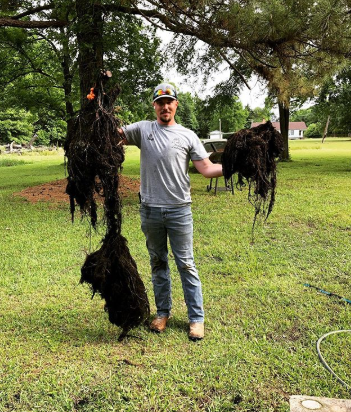 Jeff Keller – Bulldog Contractors allows him to work alongside his father Carl and other Bulldog team members. For over 35 years, Bulldog Contractors have brought areas of Northeast Texas first class plumbing and septic service, experience, and quality work with exceptional results. They are committed to exceed the expectations of our customers with quality service and expertise on every project we do. With a lot of repeat business, they have built long-term & trusting relationships over the years.
Jeff Keller – Bulldog Contractors allows him to work alongside his father Carl and other Bulldog team members. For over 35 years, Bulldog Contractors have brought areas of Northeast Texas first class plumbing and septic service, experience, and quality work with exceptional results. They are committed to exceed the expectations of our customers with quality service and expertise on every project we do. With a lot of repeat business, they have built long-term & trusting relationships over the years.
